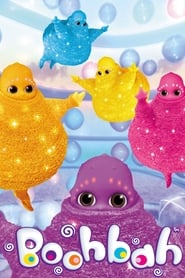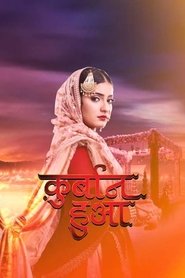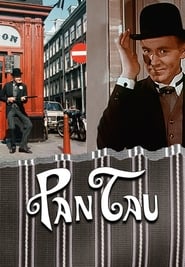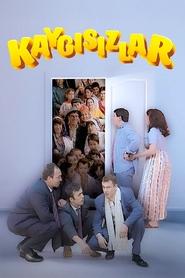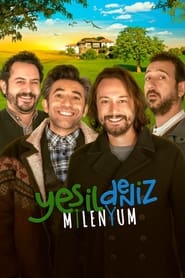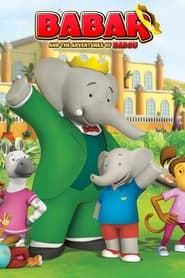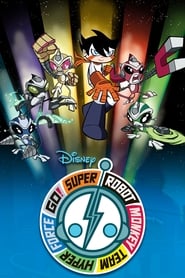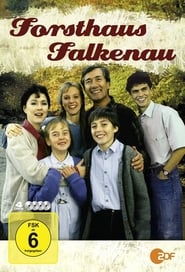Family TV Series - Page 83
-
Boohbah
2003
Boohbah
2003
star 7.3Boohbah was a children's television show. It premiered in 2003 on ITV in the United Kingdom, and on 19 January 2004 in the United States on PBS until 2 July 2006. It was created by Anne Wood with scripts by Alan Dapre and Robin Stevens. Anne Wood also created the children's show Teletubbies, and Boohbah is produced by the UK's Ragdoll Ltd. and the USA's PBS Kids. The similarity between this show and Teletubbies, both of which have a "science fiction" theme, is notable. One of the show's trademarks is a child's voice pronouncing the show's name in sing-song. "Boohbah" means "doll" in Hebrew, but it is not clear if this influenced the name of the show, or even if the creators are aware of this. -
Kin
2018
Kin
2018
Kin, is a Singaporean family daily tv series, about the complexities of life, love and family relationships. Years have passed since Yoke and Ella had their lives turned upside-down when they returned to be with their rightful families after being swapped at birth. Years later, Yoke has seemingly embraced her role as a status-conscious, high-society Shelley, assuming a leadership role in the family business. Ella has accepted her fate as a member of the salt of the earth, working-class Loh family but struggles to make something of her life. The Lohs, Shelleys, Hassans, and Balas have overcome personal loss, incarceration, as well as estrangement of their loved ones; yet lingering tensions remain. Mysteries continue to unfold as characters pursue their individual agendas, while emotional drama abounds as surprising twists are revealed that threaten the stability to which they have become accustomed.. -
家有儿女初长成
2018
家有儿女初长成
2018
-
Qurbaan Hua
2020
Qurbaan Hua
2020
star 2Qurbaan Hua is an Indian Hindi drama television series which broadcast on Zee TV. It is produced by Full House Media of Sonali Jaffer and Amir Jaffer -
Pan Tau
1970
Pan Tau
1970
star 6.8Pan Tau always had a gentle expression and a friendly smile, he was elegantly dressed in a stroller, with an umbrella and a white carnation in the lapel. Foremost, he was famous for his magic bowler hat. By tapping on his hat, Pan Tau was able to change his appearance into a puppet, to conjure up miscellaneous objects or to do other magic. His most characteristically behavior is that he would help children who were experiencing some sort of difficulties in-between their dreams and reality, like finding a place for skiing, settling family problems on Christmas, and even give a boy a good time at a fair when he is supposed to have piano lessons. To adults, he usually remained invisible. -
Kaygısızlar
1994
-
A Pledge to God
2018
A Pledge to God
2018
star 8Seo Ji Young is an anchorwoman and talk show host who is also fiercely devoted to her children. Meanwhile, Kim Jae Wook is the heir to a large architecture firm who is willing to lay everything on the line and stand up against his family in order to protect his children. -
Double Dare
2018
Double Dare
2018
star 7.6The all-new Double Dare with Liza Koshy has all the trivia, physical challenges, and obstacles for the messiest game show on TV! -
The Promise
2016
The Promise
2016
star 3.5Na-Yeon is a bright woman. She supports her boyfriend Tae-Joon, who is from a poor background, and has even given up entering a university. But Tae-Joon dumps her for his success and goes with Se-Jin, who is a granddaughter of Baekdoo Company president. Do-Hee is Na-Yeon’s twin sister. She is arrogant and tough. Do-Hee works as a reporter at a weekly magazine. After Na-Yeon’s death, Do-Hee decides to take revenge. She takes on the identity of her sister Na-Yeon. Do-Hee then meets Hwi-Kyung, who is successor of Baekdoo Company. -
Green Sea: Millenium
2023
Green Sea: Millenium
2023
star 7.5A few years have passed since Ismail's departure. During this time, in the cute town of Yeşilova, the age of technology has been stepped in, and great changes have occurred in the lives of the faithful. -
Unstoppable Youth
2019
Unstoppable Youth
2019
star 8In the City University League, the Mingyang Women’s Queue to fight against the old Star Stars team failed again and fell into a crisis of dissolution. By chance, the volleyball talent Yi Anle joined the Ming Yang team, but her height and disadvantages and physical limitations made her teammates question her. Yi Anle used his kindness, courage and perseverance to resolve the contradiction between teammates, and established friendship with Fu Jiaqian Qiu Yuanya, migrant girl Sheng Yu, and Pei Baiyan Xu Haiyan who sneaked into volleyball. This team, which is not optimistic, has advanced into the provincial league in a route to the city league. -
Hammerslag
2007
Hammerslag
2007
star 10Realestate agents competite against each other, guessing 3 recently sold house prices per show. -
荒年全村啃树皮,我有系统满仓肉
2025
荒年全村啃树皮,我有系统满仓肉
2025
-
Babar and the Adventures of Badou
2010
star 4.3An updated version of the classic series, following King Babar, and Badou, his 8-year-old grandson. -
Cadillacs and Dinosaurs
1993
star 6.8The adventures of the human survivors in a future dinosaur dominated world. -
Be Strong, Geum-soon!
2005
star 7.7This is a story of a young widow, Geum-Soon, who never becomes discouraged or blames other people - no matter what happens in her life. The viewers will get both hope and comfort by watching her do her best in everything she does.It is also a story of a family who loves and takes care of each other. You can always turn to your family and their love gives you the hope to get through the tough times. Sometimes, they seem to make your life more difficult, but they will always stand up for you and love you whatever you do. -
Super Robot Monkey Team Hyperforce Go!
2004
star 7.2Super Robot Monkey Team Hyperforce Go! is an American/Japanese animated television series, and was created by Ciro Nieli, one of the directors of Teen Titans, with animation being done by a Japanese studio known as The Answer Studio. Set mainly on the fictional planet of Shuggazoom, the series follows the adventures of five cyborg monkeys and a human boy named Chiro as they struggle to protect their planet - and the rest of the universe - from the forces of evil. As is obvious from the visual appearance of the show, there is a significant anime influence present, despite being produced for American television. It was also influenced by Star Trek, Super Sentai, Voltron, and Star Wars. The show also contains various references to pop culture, a notable example being the episode "Season of the Skull", which is a parody of the 1970s thriller The Wicker Man. -
再续意难忘 央视版
2009
-
Forsthaus Falkenau
1989
-
Bulbulay
2009
Bulbulay
2009
star 7.6'Bulbulay' is a sitcom that revolves around a family of four. In each episode Momo, Nabeel, Khoobsurat and Mehmood Sahib, find themselves in a new situation every time and deal with the consequences in their own unique manner.
